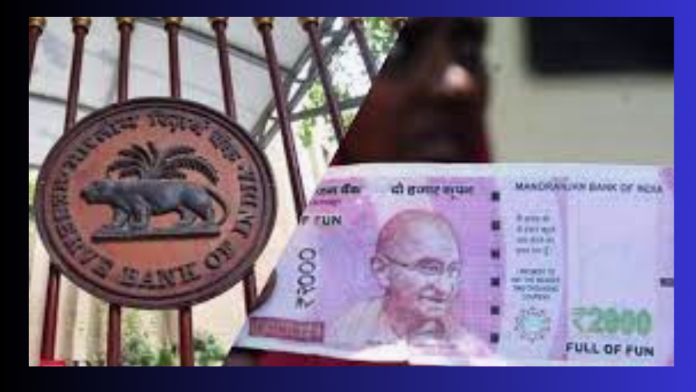RBI 2000 Rupees Note: The Reserve Bank of India has withdrawn the 2000 rupee note under the Clean Note Policy. It can be changed or deposited in banks till 30 September 2023.
2000 Rupees Note: The Reserve Bank of India had decided to withdraw the 2000 rupee note on 19 May 2023. These notes will be exchanged in banks from 23 May i.e. tomorrow. Time has been given to change it till 30 September 2023. RBI has said that these notes have only been removed from circulation, but they will continue to be legal tender.
What is clean note policy
RBI has taken the decision to withdraw the 2000 rupee note under the clean note policy. RBI’s clean note policy ensures that good quality bank notes reach the people. The objective of this policy is to maintain the integrity of Indian currency by removing damaged, counterfeit and soiled Indian currency notes.
What happens under Clean Note Policy?
Under the clean note policy, banks and financial institutions have to remove unfit or damaged notes from circulation. With this, these notes have to be replaced with new notes. Under this policy of RBI, the quality of notes in circulation is monitored.
Printing was stopped in 2018
In December 2013, banks were asked to replace bad, dirty and damaged notes with good quality notes under the Clean Note Policy by the RBI. Significantly, the printing of 2000 notes was started in 2016 and it was implemented after demonetisation. And in 2018-19, the Central Bank had stopped the printing of these notes.
What did the governor say on the 2000 rupee note
The governor of the Reserve Bank of India on Monday gave his first reaction on the withdrawal of Rs 2000 from circulation and said that people have enough time of 4 months. People can convert it into banks without any hassle and haste. He said that notes of other denominations are available in sufficient quantity in the market. If there is any problem, you can contact the bank or RBI.

